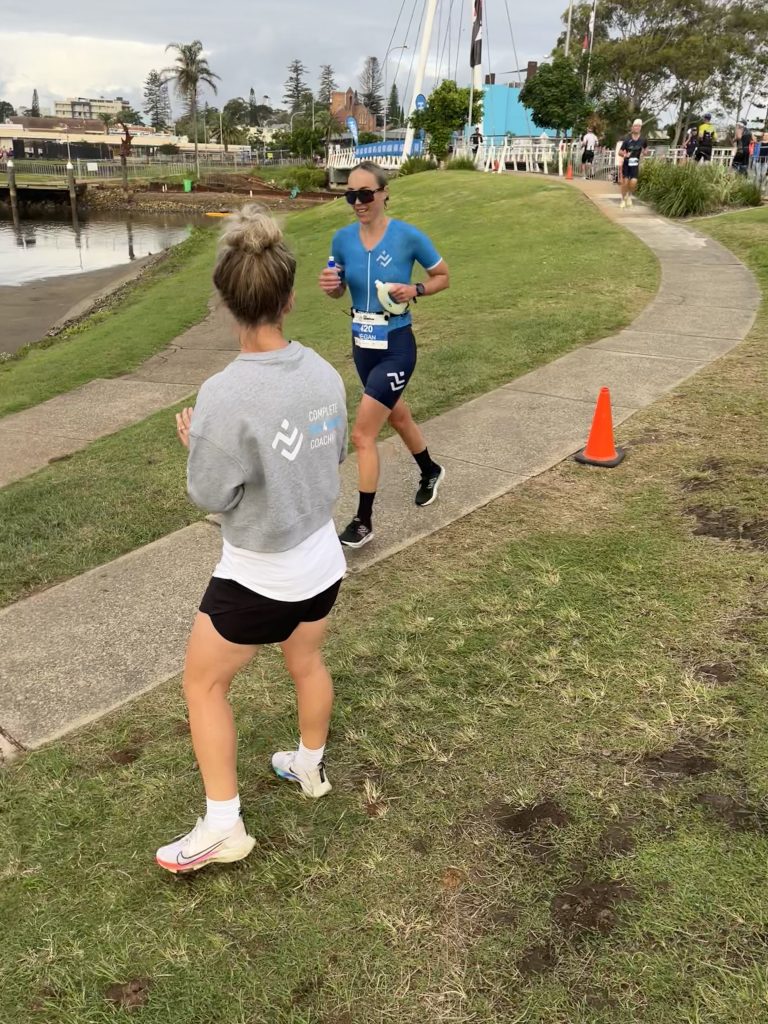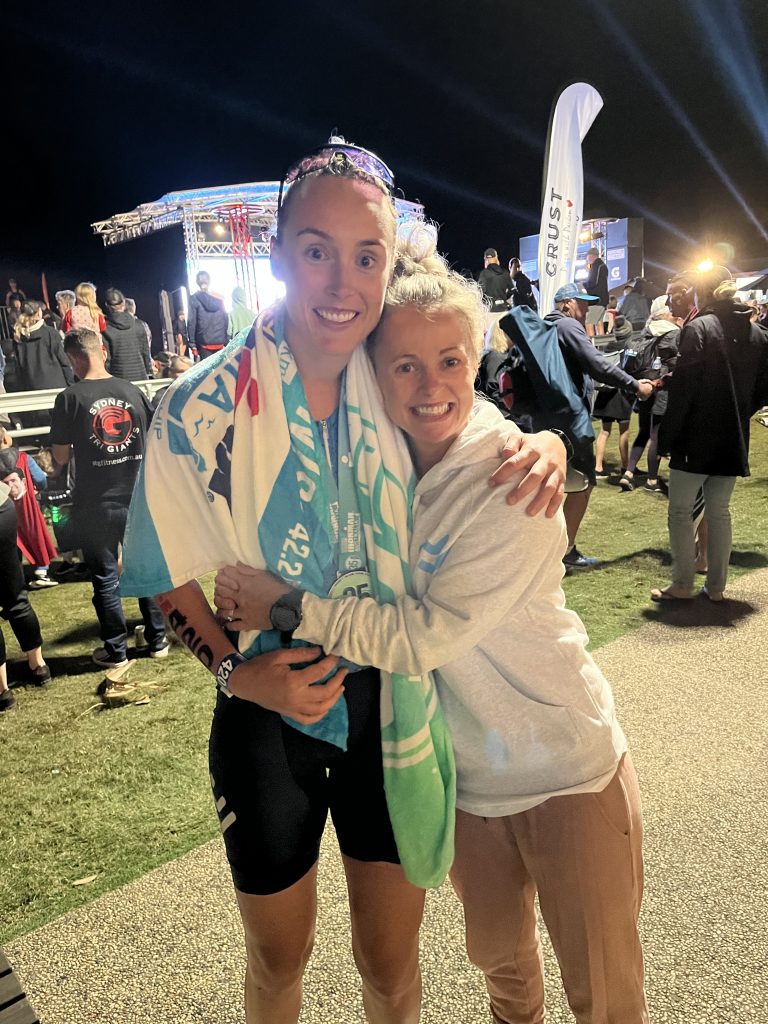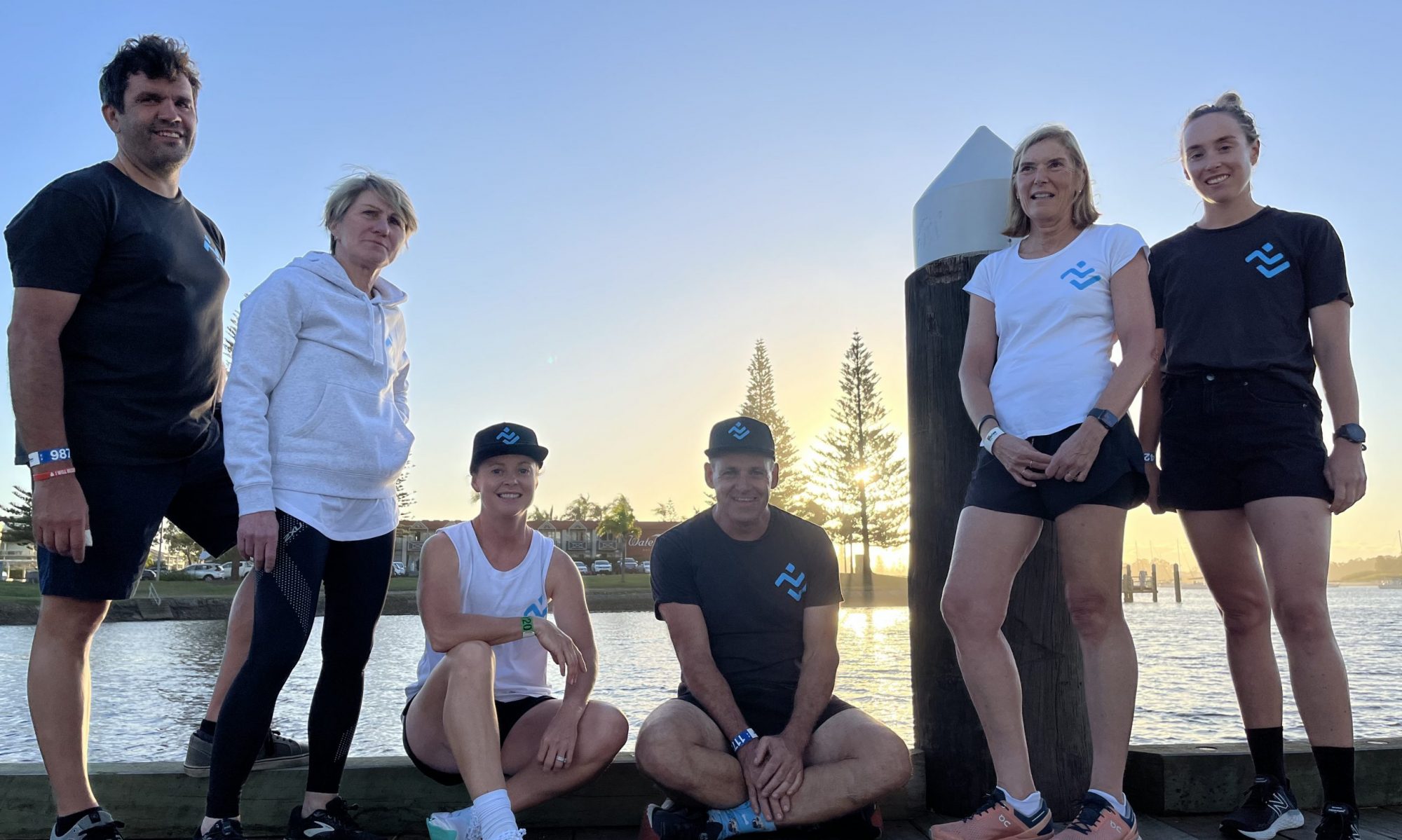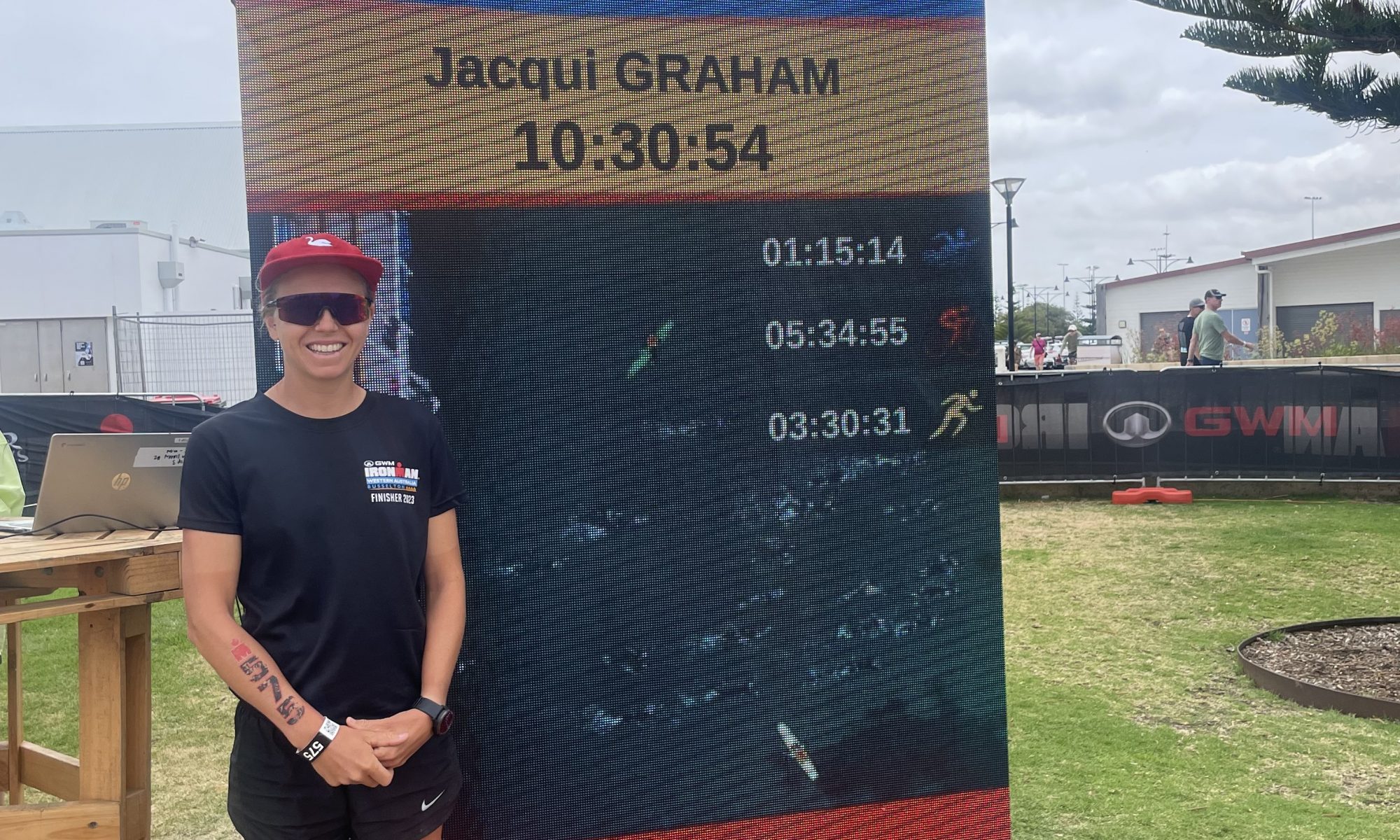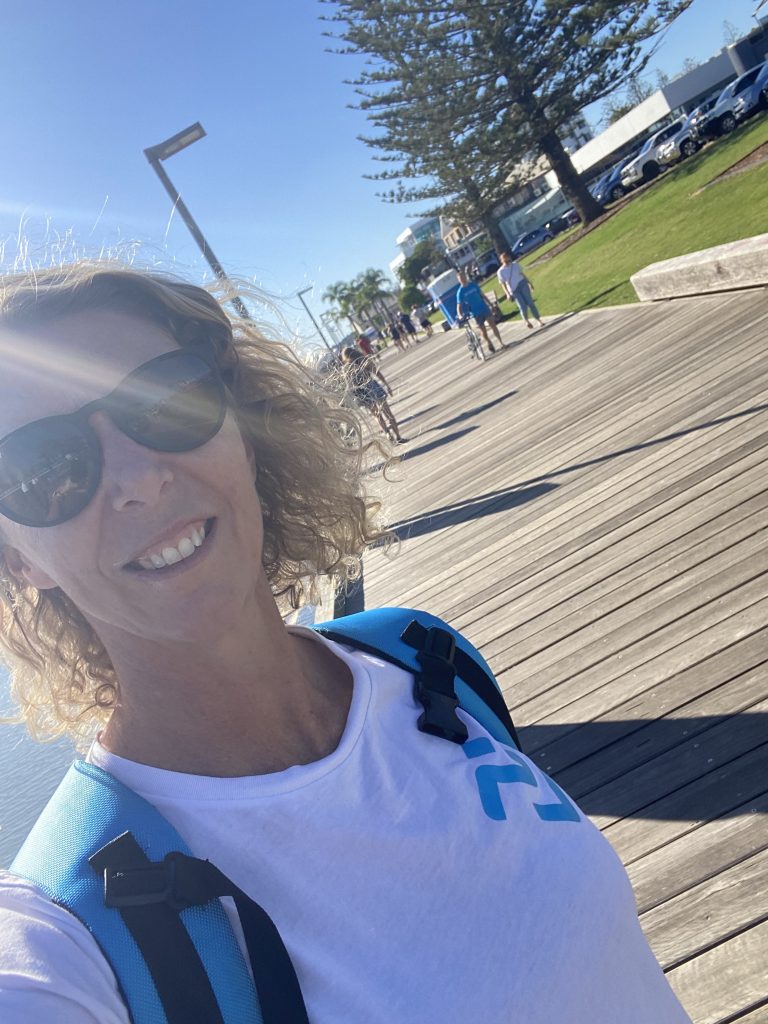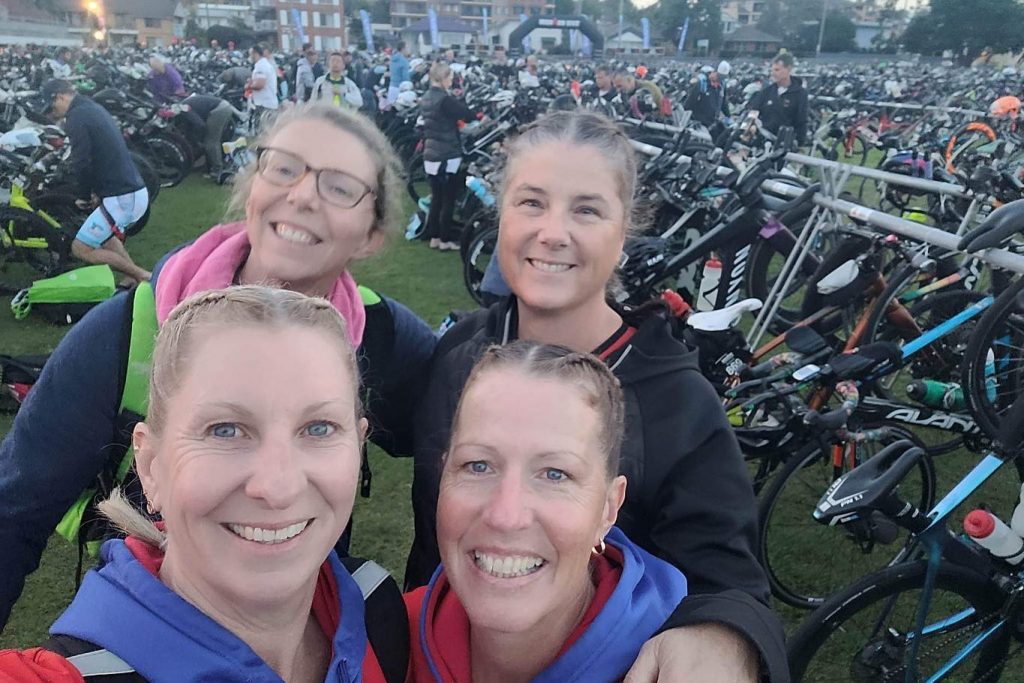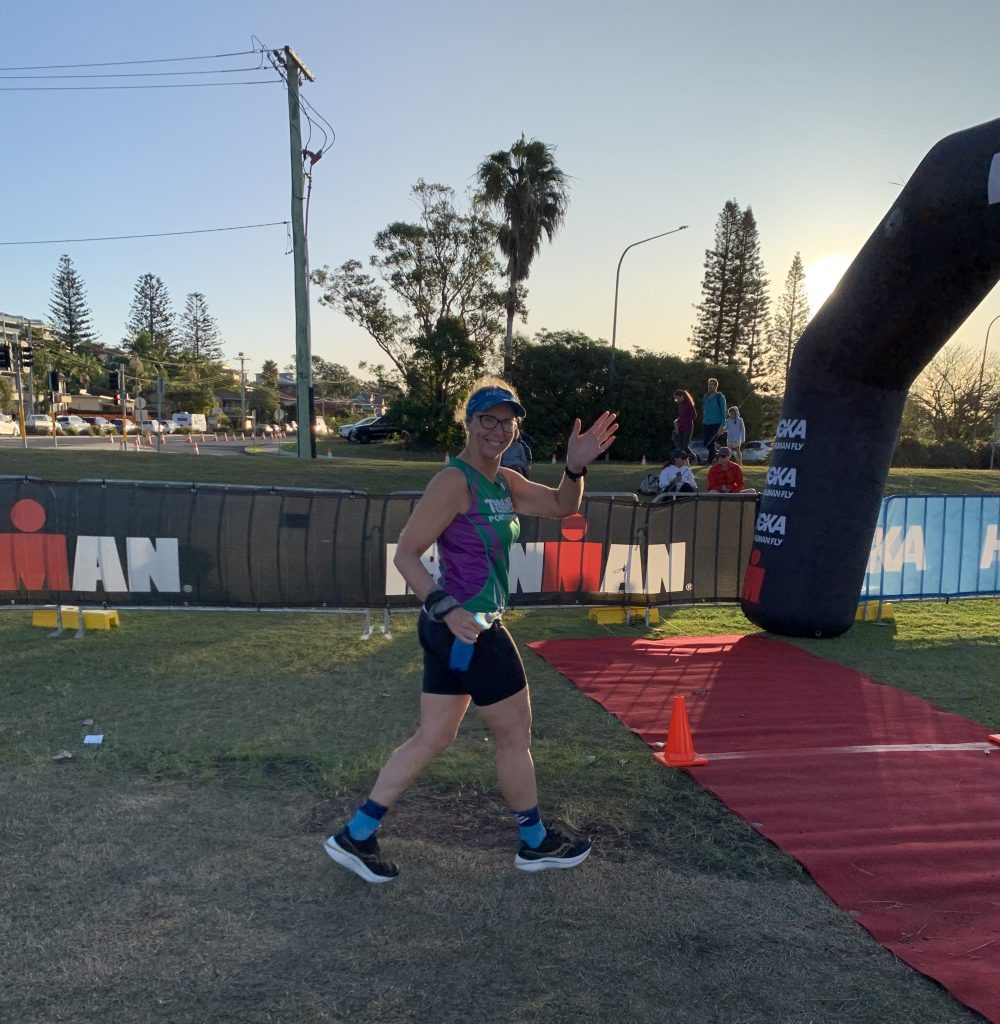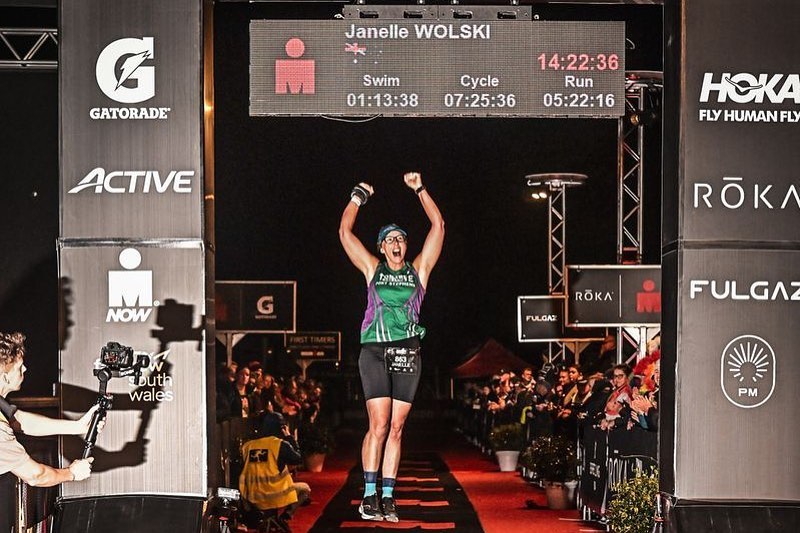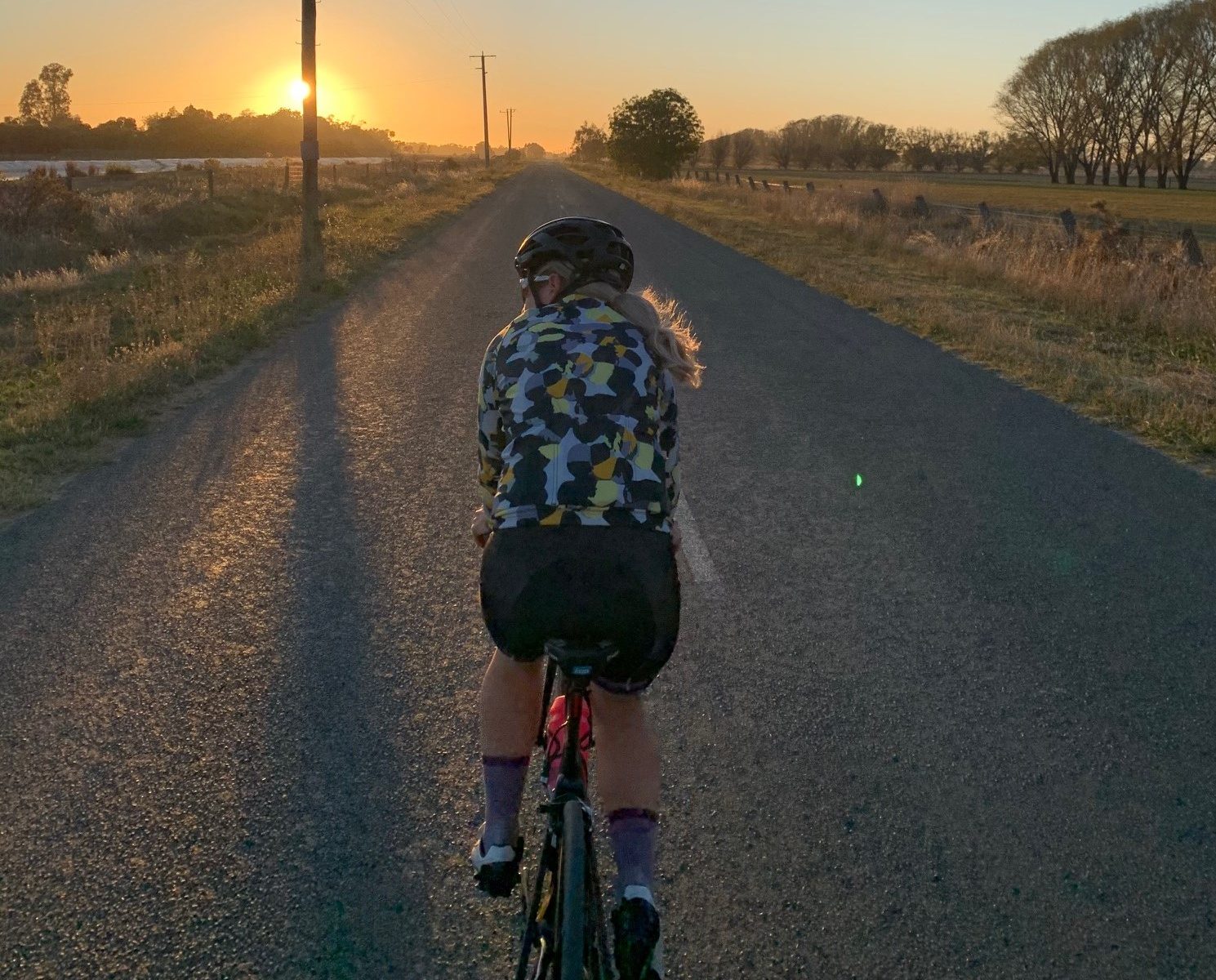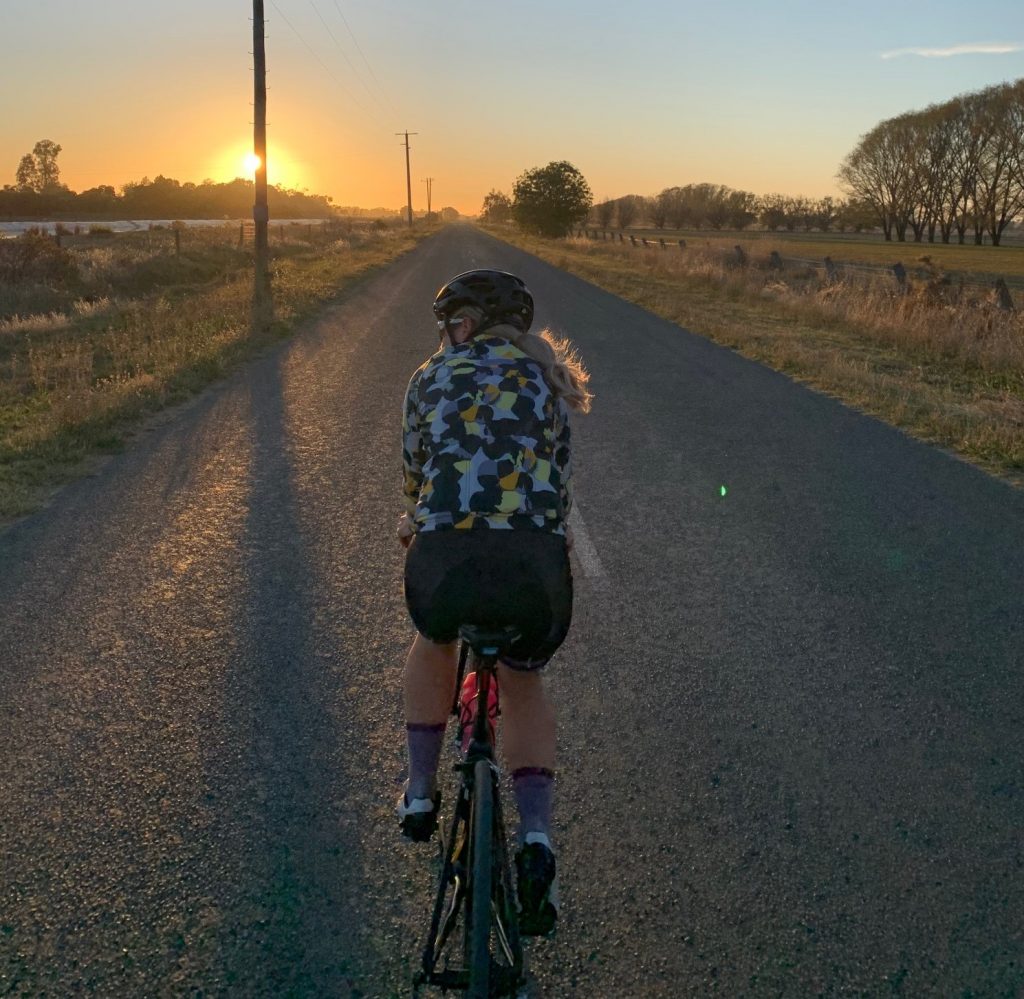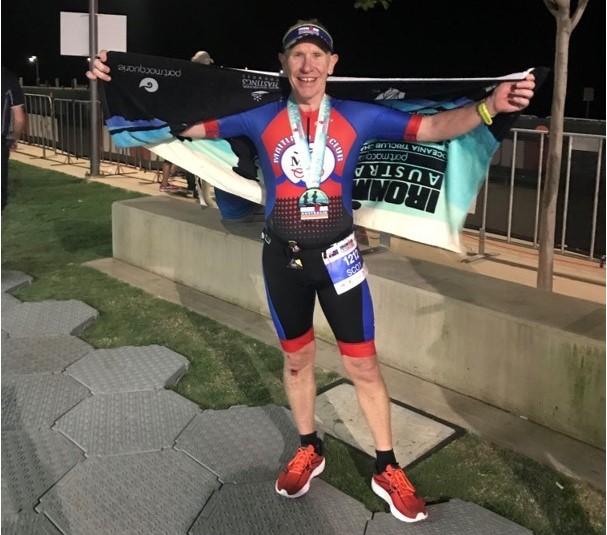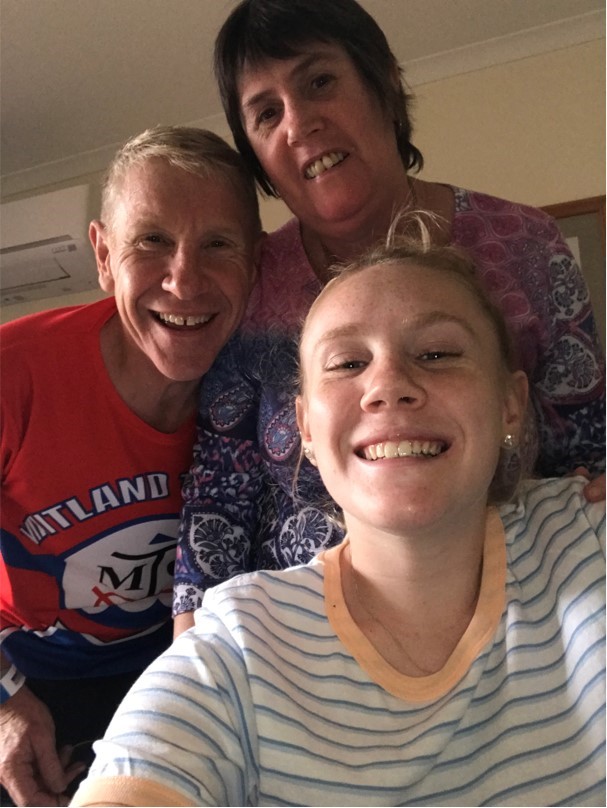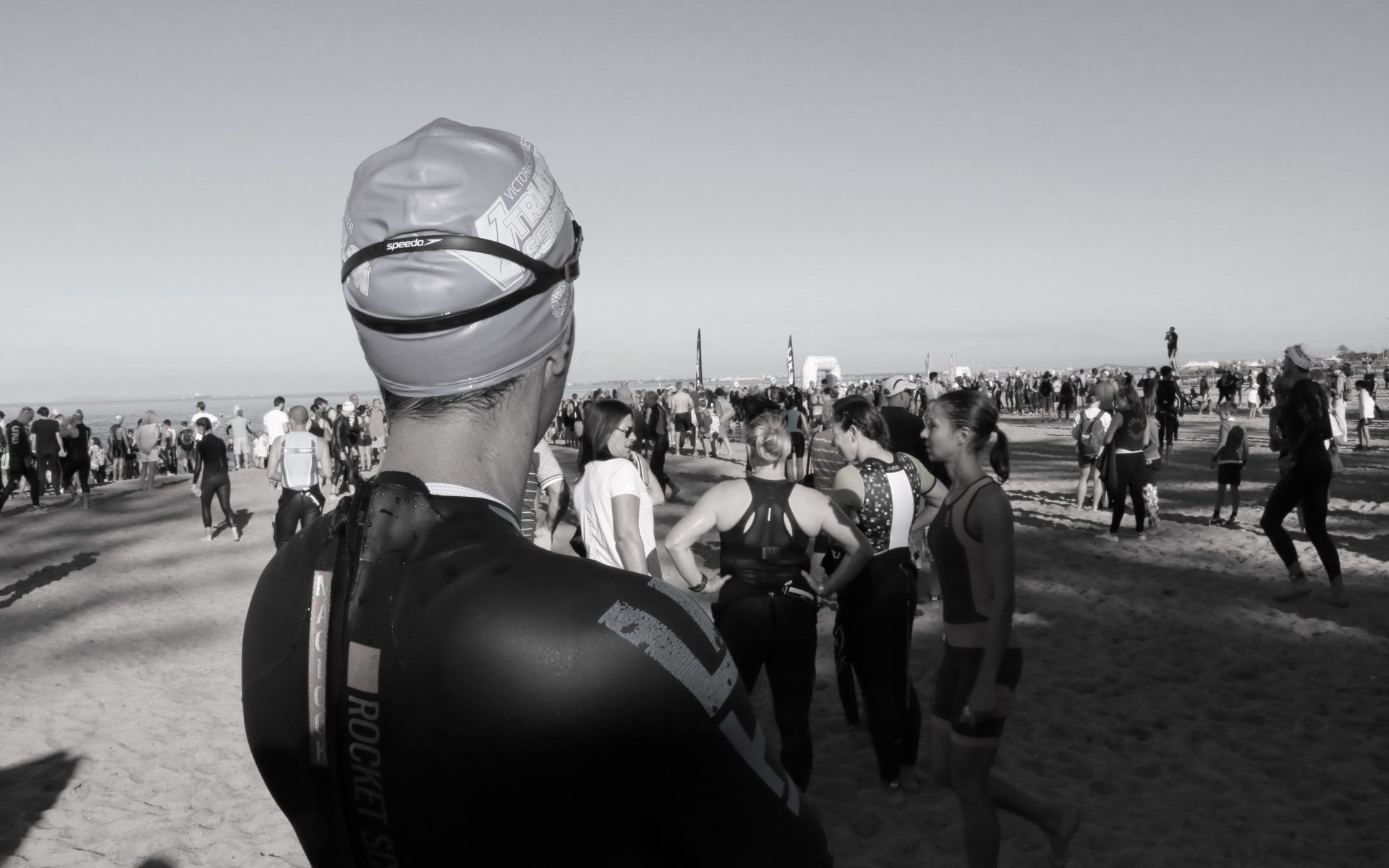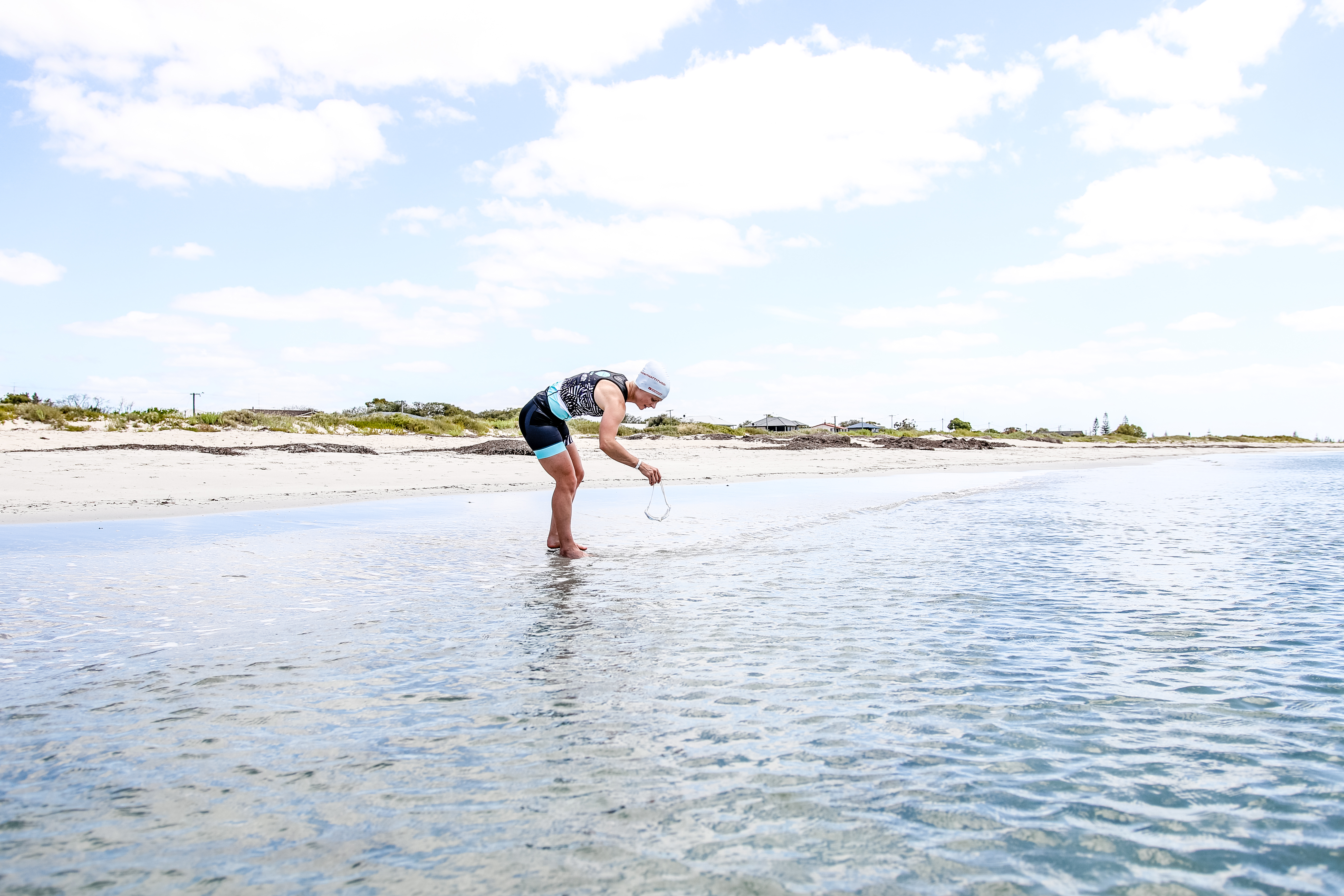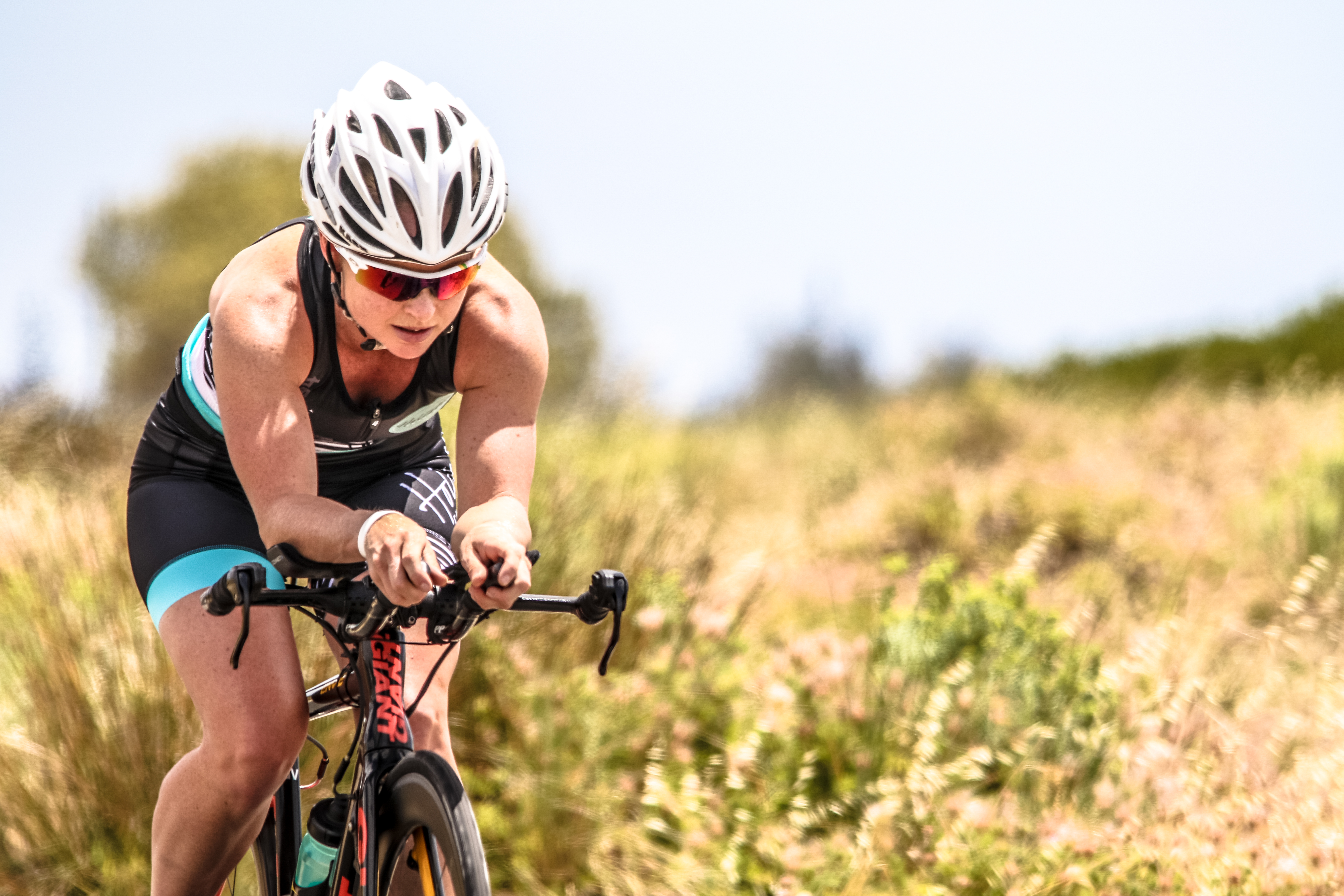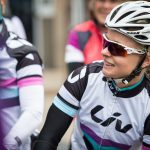WHY DO YOU RACE?
I love racing. I do. I love the feeling of pushing my body to it’s limits, against every other athlete out there on the day and seeing where that lands me.
For as long as I can remember, I have always been competitive. No matter the sport. I don’t generally half @arse things. I go all in, otherwise I’m out. Growing up I played team sports, netball and basketball both at a high level, and I had a dabble at soccer too. I love the competitiveness, and I love winning.
Then came along triathlon in my 20’s and I went all in there. Wanting to learn the craft, finding out how hard I could push my body and what result that would bring on race day. I would thrive off racing, and I didn’t want to settle. I was by and large ‘all in’. Racing results were my main motivation for training. And I’ve done that for 15 years, with some great success, but not with a LOT of hard work. I trained to race and I thrived off that.
BUT over the past 12 months or so, racing hasn’t been my main motivator for training anymore.
I still train every day. Sometimes 2 or 3 times a day. I still put myself through sessions that I give to my athletes so I know what they feel like / should feel like. I still like pushing myself and setting myself goals and challenges. I love the feeling of feeling fit, and healthy.
But I don’t actually have the drive to want to race to win anymore. I know I could. Because I’m stubborn like that. And I know if I wanted to, I could. But I don’t. I’ve still dabbled in running and cycling and triathlon races, but not with as much focus or as much gusto. Old me would not have raced, if I wasn’t fit and strong enough to give it my best, I wouldn’t have put myself on the start line.
And it has been hard to reconcile in my head at times. My last ‘competitive’ race was Port Macquarie Half Ironman in 2022. I finished 4th in my age group, as a full time coach, and full time mum to a 3 & 4 year old. Before that, it was 2 years prior at Geelong Half Ironman where I qualified for the Half Ironman World Champs. (Ironically being held this year in New Zealand) with a 1 & 2 year old. That was tough, but oh so satisfying!

Back then all I wanted to do was win. And I was fully engrossed in it. My whole identity was wrapped up in it. I prioritised training and racing to win over just about everything else in my life. I just wanted to WIN. Until I didn’t want to anymore…..
I saw a post a couple of years ago by another coach and it said something along the lines of a coach must be able to walk the walk, and not just talk the talk. And it didn’t sit well with me. But at the same time I was like, shit I better keep racing to be able to ‘prove’ that I can and prove that I can coach – BUT then it dawned on me. The two are mutually exclusive, they don’t have to go hand in hand. Sometimes they do – which I’ve done for years. But they certainly don’t have to and we all know LOTS of successful coaches that don’t race at a high level anymore – or at all. So, with that, over the last couple of years as things have shifted, my mindset shifted and so did my priorities.
I am always saying to athletes that intrinsic motivation should be first and foremost. Of course use extrinsic motivation to aid you, to continue to drive you to be better, but your main motivator should come from within. Yet here I was, using a post I came across on facebook and the perception I thought others must have of me to continue to drive me. But like most people who rely on extrinsic motivation, that can often only last for so long….
When I had our first born (nearly 7 years ago) I wanted / needed to get back racing. I didn’t want to loose that identity as an ‘athlete’. That’s what I had known myself as for so much of my life. The satisfaction I got from it was huge and all my energy and focus was on those goals.
But in come children, two at that in quick succession and things slowly shifted. My want and need to have a singular goal and focus for myself has become lesser as our children have grown. And my growth and personal satisfaction has come more from the athletes that I coach, the group we have built, of the Club that I support, the community that we now live in and of course – my family.
I don’t need to race at the top level anymore if I don’t want to – to simply ‘walk the walk’.
I don’t need to race for external satisfaction.
I know I can now race if and when I want to.
I can race because I CAN, because I know HOW and because I LOVE to. Not because I feel I have to.
I have learnt that it is the training itself and the discipline it brings that I actually love the most, not necessarily the racing. The racing is a by product – a bonus if you will…. Perhaps, deep down that’s what has always driven me, I just didn’t realise it …. I don’t have to force myself to train or exercise, I do it because I love it.
Which is why I stay fit. Which is why I train every day. So I can, if I want, when I want, where I want. A quick little prep will have me ready and I’ll enjoy returning to those feelings. But I most likely won’t go ‘all in’ like I used to, not because I can’t, but because I choose not to.
Now that all may change again at some point. What feels right now, may not be the same in another few years. We all go through seasons in life and I love embracing all of them.
And that’s what I also love about coaching each individual athlete I have. I have some athletes in the early stages of their athletic journeys, going all in, and I fully embrace that, support that and help foster the environment and training that they need.
I have other athletes who prefer a softer balance to their training, competing when they can, and training as it fits into their life. I have others who don’t compete – at all. They simply love the structure and discipline of training in their lives, and staying fit. Just as I do. And I have the pro and inspiring pros. The high achievers. Those chasing PB’s, wanting the most out of themselves, and I love being on the sidelines for all of that. I love being part of each of their journeys.
So no matter the athletes path, or where they are at in their journey. I love all of it, because it is THEIR journey. Just as I am on my own journey. And as a Coach, I love that I’ve been through all facets of it. I’ve been the beginner, the green and keen athlete, the top age grouper, I’ve dabbled as a pro, a mum juggling it all, and the one still here for the long haul.
And I am grateful to be part of that and still join in on the ride!
Coach Sarah x
